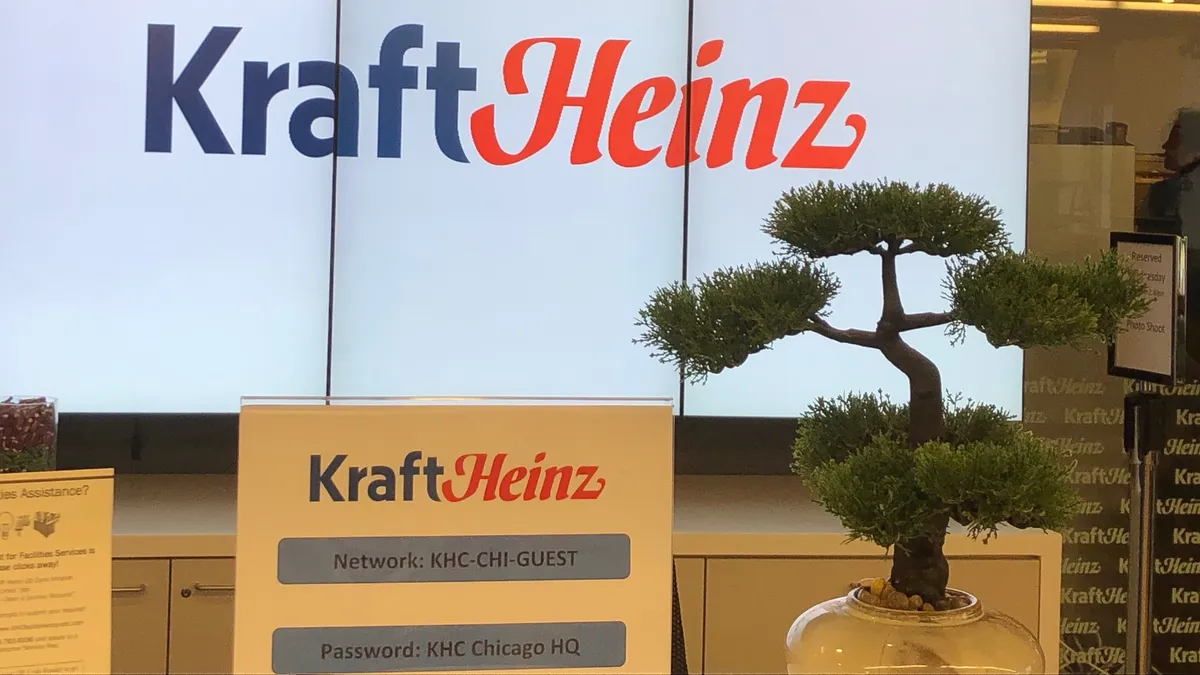Dive Brief:
- Kraft Heinz will restate two years and nine months of financial disclosures covering 2016 and 2017, along with the first nine months of 2018, after an internal investigation revealed "several employees in the procurement area engaged in misconduct," according to an 8-K filed May 2 with the Securities and Exchange Commission (SEC). An 8-K is filed when a company must amend a previous filing or alert shareholders to a meaningful event with financial consequences outside the normal course of business.
- Kraft Heinz is under investigation by the SEC, according to the same filing. The company described receiving a subpoena for documents related to its procurement function as recently as March 1 but could not specify the "eventual scope, duration, or outcome of any potential SEC investigation or whether it could have a material impact on the financial condition, results of operations, or cash flow of the Company," according to the filing.
- According CNBC, citing conversations with former Kraft Heinz employees and sources familiar with the company's finances, Kraft Heinz's bonus structure incentivized procurement and operations teams to show the highest possible cost savings, a culture which also led to inexperienced individuals receiving fast promotions, according to CNBC.
Dive Insight:
Filings of 8-Ks are frequent, but Kraft Heinz's is notable since it traces the error back to the company's procurement group's practices surrounding contracts and cost savings.
"During the course of a thorough internal investigation, some discrepancies were uncovered which affected the way earnings were calculated between periods. While we don’t believe that the misstatements are quantitatively material to any prior period, due to the qualitative nature of the matters identified, the Company determined that it is appropriate to correct the errors in previously issued financial statements. The misstatements are described in greater detail in our filing but largely relate to the timing and recognition of supplier contracts in the procurement area," said Michael Mullen, spokesman and SVP of Corporate Affairs at Kraft Heinz, in an email to Supply Chain Dive.
The "timing" referenced in this statement most likely refers to employees accelerating the discounts and rebates negotiated with suppliers to show lower costs sooner, rather than carrying them out over a longer period of time, reflecting the life of the contract.
"These misstatements principally relate to the incorrect timing of when certain cost and rebate elements associated with complex supplier contracts and arrangements were initially recognized, and once corrected for, the Company expects to recognize corresponding decreases to costs of products sold in future financial periods," according to the filing.
The value of the "misstatements" is $208 million, according to the filing, which stipulates approximately $27 million of this was discovered in the since-closed internal investigation and corrected in the company's fourth-quarter reporting.
Still, procurement never happens in a vacuum. For procurement malfeasance to affect financials, it must get past internal checkpoints and controls.
"The Company is taking action to improve our policies and procedures and will continue to strengthen our internal financial controls. The findings from the investigation did not identify any misconduct by any member of the senior management team. We are pleased to report that the [internal] investigation is now substantially complete," continued Mullen's emailed statement.
The filing also mentions these matters have led to several related lawsuits against Kraft Heinz, "its Board of Directors, certain of the Company’s current and former officers, and other defendants."
This story was first published in our weekly newsletter, Supply Chain Dive: Procurement. Sign up here.














